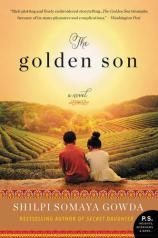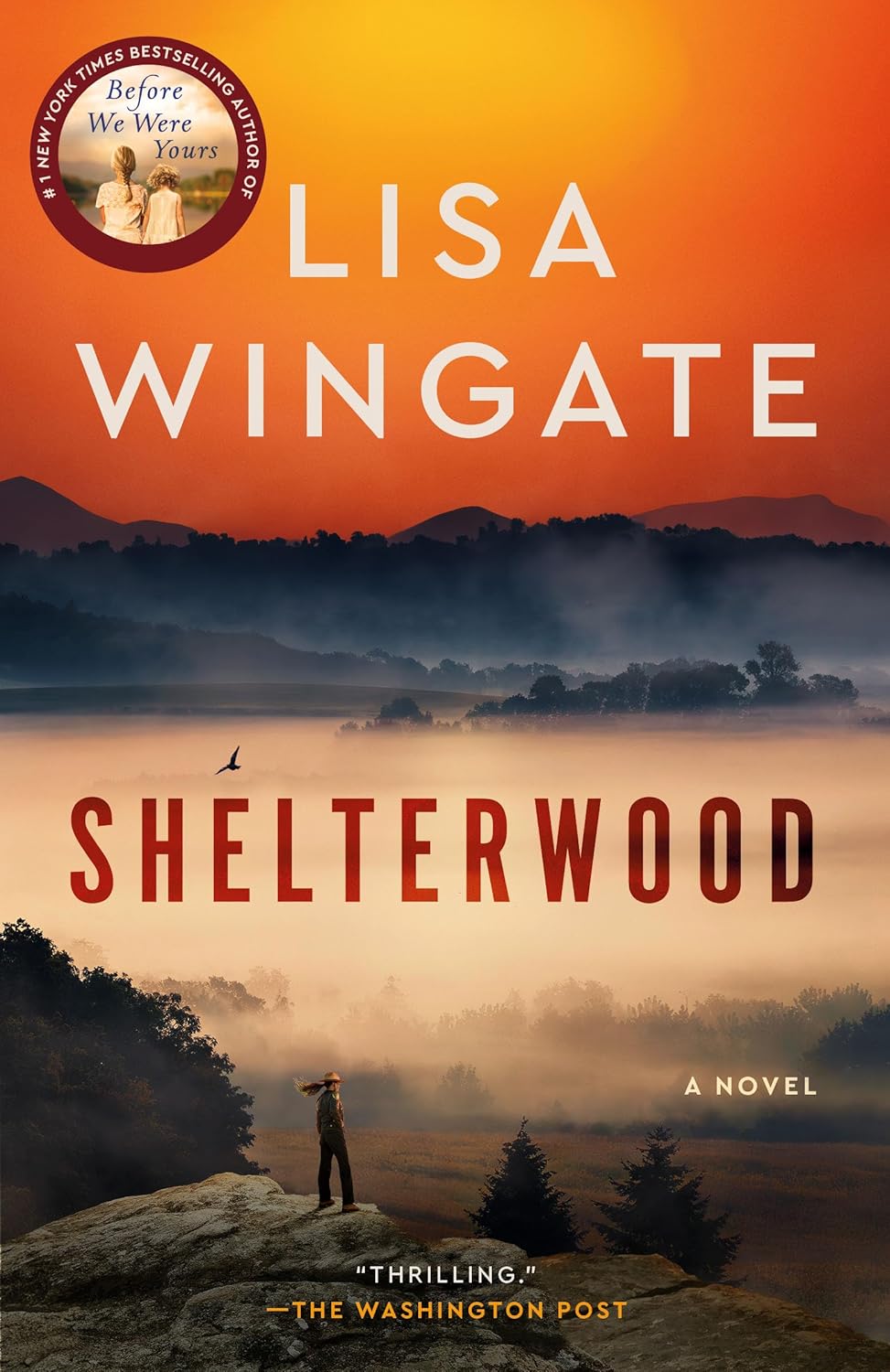Interview: January 28, 2016
Shilpi Somaya Gowda, the internationally bestselling author of SECRET DAUGHTER, now returns with her highly anticipated sophomore effort, THE GOLDEN SON. It’s the lovely, complicated story of Anil Patel, who makes the difficult decision to leave behind his Indian village to pursue a medical career in the U.S. --- only to be called back after the sudden death of his father to fulfill his duty-bound role as village arbiter. In this interview, Gowda talks to The Book Report Network's Bronwyn Miller about why she is and always has been so fascinated by the Indian tradition of a panchayat, and how that kind of justice system plays out on a personal and communal level. She also discusses why she is drawn to stories dealing with cross-cultural issues, how volunteering at an orphanage changed her life, and what she’d like readers to take away from THE GOLDEN SON.
The Book Report Network: You spent a summer volunteering at an orphanage in India, which provided grist for your first novel, SECRET DAUGHTER. Where did the inspiration for THE GOLDEN SON come from? Did you always envision it as a dual narrative?
Shilpi Somaya Gowda: The first kernel of the idea again came from personal experience. In India, there is a long tradition of settling disputes between individuals and families within a community. In its original form, an assembly of five respected elders (a “panchayat”) was used before formal judicial systems were established in rural areas, but this custom has endured in less formal ways in many communities. I had the idea of telling the story of a young man who becomes the arbiter of his family and how his maturation might be shaped by that role. That was the core of the idea around which I began to build the rest of the story.
I started out writing only from Anil’s perspective, because his story and character arc were the clearest to me. I never envisioned the story as a dual narrative or one with multiple points of view. Leena started out as a secondary character in the last half of the novel, who appeared only through her interactions with Anil in India, and through letters she exchanged with him in America. But her story was so compelling that it kept growing through each draft, until finally I wrote her full story and interwove it throughout the whole book, showing how her life was unfolding in parallel, or in contrast, to Anil’s life. Eventually it became clear that Anil and Leena’s friendship, rooted in childhood and a common beginning, was the backdrop for the rest of their stories.
TBRN: What was it about the concept of the panchayat that so intrigued you?
SSG: I have long been fascinated by the concept. I grew up hearing many stories, in my family and others, about lives that were changed through the panchayat: women granted divorces from abusive marriages, for example, long before there were laws in place to protect them. Of course, not all disputes were settled happily for all parties, and afterward they had to go back to living together in the same community. It’s so different from the nearly anonymous, transactional way we administer justice. As a child, since I was not often privy to these conversations, my imagination took over. I became further intrigued as an adult, once I realized that grown-ups don’t have all the answers and, in fact, often there is no clear answer.
TBRN: How did the experience of writing THE GOLDEN SON differ from that of SECRET DAUGHTER?
SSG: SECRET DAUGHTER was my first serious writing effort, and that came after 15 years working in the business world. I had a strong idea of the story I wanted to tell, but very little knowledge of the craft of writing, so I had to learn how to build and structure a novel as I wrote. I was uncertain whether I would even be able to write a full manuscript.
THE GOLDEN SON was a very different writing experience for me. The whole idea for the story arc came to me at once, and I completed the first draft relatively quickly, but it took a long time for the story to evolve to its final form. During that time, SECRET DAUGHTER was published and I heard from readers all over the world, so it also became important for me not to disappoint all the people who had supported my first book.
TBRN: The novel took you five years to complete. Which part proved to be the most labor-intensive --- the writing, the researching or the revising?
SSG: It took over five years to finish largely because I rewrote it many times, throwing out several full drafts and starting over --- from different points of view, over different time spans, with major changes to plot and characters. It turns out the first idea that came to me was just a suggestion, and as I began to write into it, I discovered the story was much more subtle and nuanced, and much harder to write well. It took many drafts to figure out how to best tell the story that had captured my imagination. Writing from a male perspective and about the medical field also presented its own set of challenges, and both required research that took time.
TBRN: How much research did you do for this book?
SSG: I did a great deal of research to understand the medical profession and the trials of a young intern --- not only the medical parts, but how hospital politics work, and the impact of the experience on individuals. I read several books, both fictionalized accounts and memoirs, about the residency experience. I interviewed many, many doctors, starting with my personal network and expanding outward to specific specialties I needed to understand. And I spent time inside the cardiology department and catheterization lab at UCSD Hospital. I’m very grateful to all the physicians who helped me learn how to tell this story. Fortunately, I never fainted on one of them.
I also traveled to my husband’s family’s village in India (which, unlike the fictional village of Panchanagar in my novel, is in South India, not Gujarat). It is a beautiful and fairly untouched existence, where several generations and branches of family live off the land. I was fortunate to learn about the agricultural practices, natural and ayurvedic medical remedies, and even to learn from a local potter how to spin clay pots without the benefit of machinery (mine turned out very wobbly).
TBRN: In the acknowledgements, you state that you have no medical background and haven’t studied science since high school. What made you want to write about a young Indian doctor during his residency? Was incorporating the medical jargon and situations into the narrative difficult?
SSG: My idea was to tell the story of a young man torn --- torn between West and East, between family and career, between responsibility and ambition, and torn apart by love --- and how he reacts to being the arbiter of his family. It seemed to me there would be no better setting for this character than the field of medicine, with its high stakes and prevalent moral questions. I wanted to explore a character that was thrust into this role of making life and death decisions for others, particularly when he’d already chosen to make such decisions in a very different way as a doctor. I just thought Anil Patel belonged in the field of medicine, so I had to make the somewhat risky choice to try to write convincingly about that world. It was difficult at first to find the right medical cases to illustrate Anil’s experience and learnings, but eventually I ended up with many more medical scenes than I could use. I cut out about two-thirds of the medical scenes by the final draft.
TBRN: Do you find that you related more to one character and their situation? If so, which one?
SSG: There’s no one character in this book that I relate to in particular; rather, there are aspects of individuals I feel more than others. I relate to Anil’s sense of living between two worlds, Leena’s nascent artistry and her connection to nature, Sonia’s ambition and upbringing, both Meena and Nirmala’s instinct to protect their families.
TBRN: What made you choose the Baltasar Gracian quote for the book’s epigram? (“When you counsel someone, you should appear to be reminding him of something he had forgotten, not of the light he was unable to see.”)
SSG: One of my business school professors wrote a quote on the board before every class. Sometimes it related to the case study or subject matter of the day, sometimes not. Usually, we didn’t even discuss the quote, but it was a valuable guidepost. This was one of the quotes my professor shared that I copied down in my notebook and kept coming back to. It reflects such a lovely sentiment; that in order to be truly helpful, you have to be humble and think about how to be effective, not just correct. It’s a worthwhile lesson to remember, not just in business or the workplace, but in life. I thought about this idea often as I wrote Anil’s story and how he learned to develop the wisdom and maturity necessary for the role of arbiter in his family.
TBRN: What would you like readers to take away from THE GOLDEN SON?
SSG: I find I am drawn repeatedly to stories of characters that have to navigate cross-cultural issues, because there are an infinite number of ways an individual can react to the particular opportunities and challenges of being an immigrant. At the same time, it’s also a very universal theme: Almost everyone can point to a story in their family history that features a personal uprooting and resettling. I think it’s important to look back in our own lineage to see that almost everyone in North America has been an immigrant in some generation, and our countries have been built on this tradition. It’s this diversity that makes Western society so strong, rich and innovative, and we would do well to remember that as we try to move ahead and compete on the global stage.
TBRN: Writing is a fairly solitary endeavor --- until the book comes out and promotion has to be done. What part of the entire process of writing and promoting a book is your favorite? Which proves to be the most challenging for you?
SSG: I may be unusual, but I enjoy both the solitary writing and the public promotion aspects of being an author. As an introvert, I enjoy the long periods of working alone and being with my thoughts while I’m writing, but I also have come to depend on a handful of trusted readers I consult when I run into challenges, as well as a community of authors to connect with. It is also very fun and rewarding, after working alone for so long, to share my work publicly, meet readers and hear their reactions. It takes some time and a mental adjustment to transition between the two modes, but I do enjoy both of them.
TBRN: You’re a patron of Childhaven International. Can you tell us a little bit about this organization?
SSG: Childhaven International is a Canadian charity that operates eight homes for women and children in India, Bangladesh, Nepal and Tibet. I spent a summer as a volunteer at their orphanage in Hyderabad, India while I was a college student, and that experience stayed with me for many years and eventually became the seed of inspiration for my first novel, SECRET DAUGHTER. Children in the homes are treated equally (boys and girls) and are encouraged to maintain their own religion and culture. The homes do not permit outside adoption, but children are sent to school and allowed to stay in the homes until they graduate. Childhaven has been doing incredible work since 1985, due largely to the ingenuity of its founders, Bonnie and Fred Cappucino, and private donations.
TBRN: What are you working on now?
SSG: I have another novel simmering in my mind. I can’t say much about it, because I’m still shaping it and doing research on my subject matter, but I’m excited to sit down and start writing soon.









